However, she said, progress is slow in Africa due to a financing deficit on the part of governments, among other factors.
Other factors that the official of Harambee Africa highlighted included what she referred to as systemic weakness of the continent’s health system, a defective supply chain mechanism and lack of structures to ensure that the most vulnerable populations are first to be vaccinated.
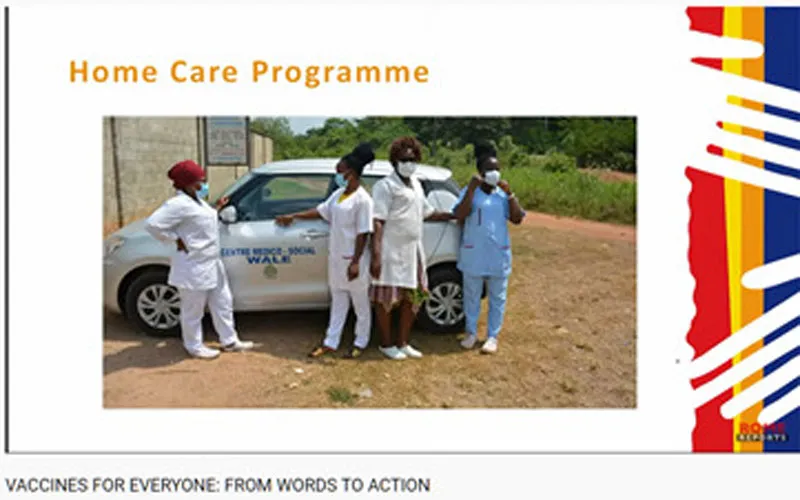 Credit: Screenshot from Youtube channel of Rome Reports 27 September 2021.
Credit: Screenshot from Youtube channel of Rome Reports 27 September 2021.
She said that governments’ selection of centers for COVID-19 testing and treatment to limit contagion led to crowding in hospitals that had to reject people. There were also long queues for tests and serious delays in delivering results, Ms. Corbi said.
Harambee Africa has provided health support to medical centers in Nigeria, Ivory Coast and DRC amid COVID-19 pandemic.
(Story continues below)
Ms. Corbi cited the case of Walé Health Centre in Yamoussoukro in Ivory Coast, a small medical facility, which she said was totally unprepared for COVID-19 when the pandemic struck.
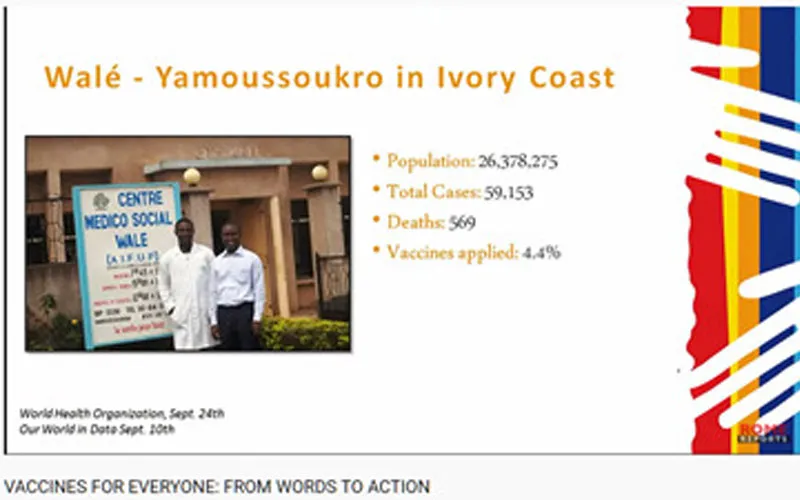 Credit: Screenshot from Youtube channel of Rome Reports 27 September 2021.
Credit: Screenshot from Youtube channel of Rome Reports 27 September 2021.
Harambee Africa provided detective kits for staff, a car to start a homecare program to prevent ill people from moving around, among other services to the health facility.
Narrating the situation of the Ivorian health facility, Ms. Corbi said, “Here again, COVID-19 demonstrated the limits of the health system in terms of the unprepared staff, delays in delivering results, crowding of patients, among others. As far as I know, there are only four functioning intensive care units in the country.”
In Nigeria, Harambee Africa collaborated with Niger Hospital where the organization supplied personal protective equipment to staff and is planning to buy additional laboratory equipment, ventilators and set up an oxygen producing plant.
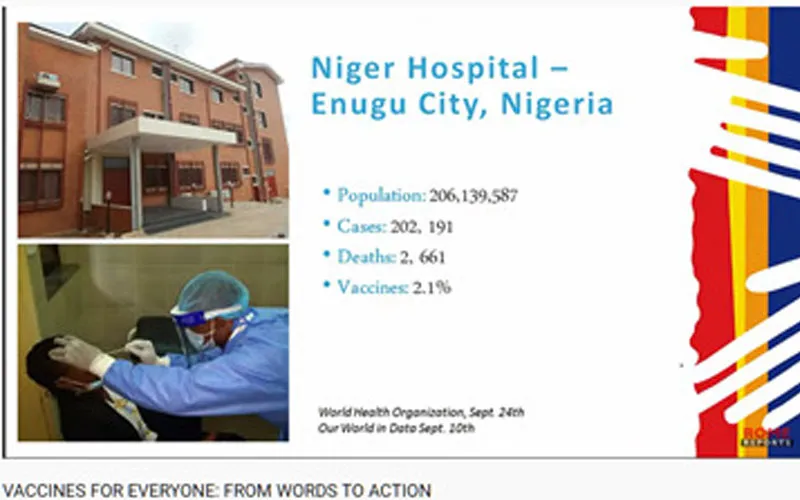 Credit: Screenshot from Youtube channel of Rome Reports 27 September 2021.
Credit: Screenshot from Youtube channel of Rome Reports 27 September 2021.
In the West African country, the Projects Manager of Harambee Africa said, it is impossible to know the real number of people infected because people hide their symptoms so as not to be isolated from their families.
In Nigeria, she further said, there is also a common attitude of skepticism and mistrust of institutions as well as fear of consequences of the vaccine in the long term.
“In fact, life is going on normally; the pandemic hasn’t worried the population too much,” Ms. Corbi said.
In DRC, the organization is supporting Monkole Hospital in Kinshasa. According to the official of Harambee Africa, the Congolese government named the health facility a COVI-19 referral hospital, promising to finance it after a top State official was treated for COVID-19 there.
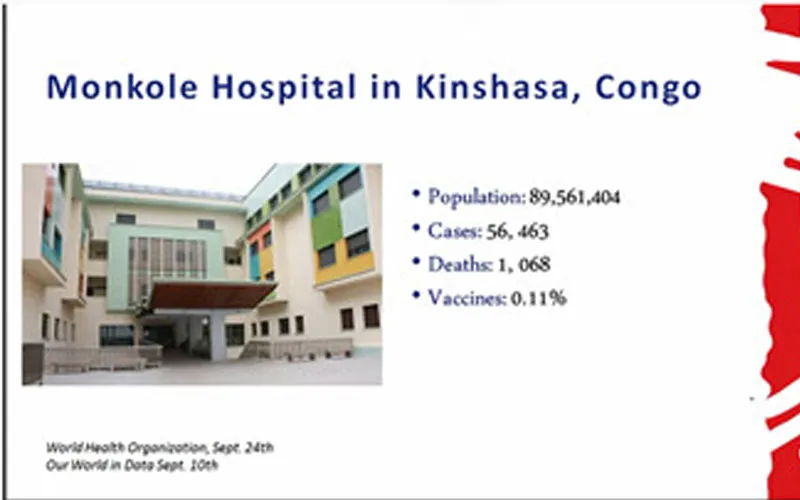 Credit: Screenshot from Youtube channel of Rome Reports 27 September 2021.
Credit: Screenshot from Youtube channel of Rome Reports 27 September 2021.
The government financial support to the hospital was, however, slow, Ms. Corbi noted, and explained, “Technical skills among staff was limited; no one knew how to intubate a patient.”
“Additionally, there are no or very few intensive care units at the hospital in Congo and the whole country has only 10 respirators, all concentrated in Kinshasa,” the official said, adding that the current priority of Harambee Africa is to modernize and upgrade the oxygen supply system for the hospital and for other hospitals in the Central African nation.
Harambee Africa has also linked the slow uptake of vaccines in African countries to delays and disorganizations.
In some cases, Ms. Corbi said, vaccines have either not been used or doses have been delivered at the limit of their expired date.
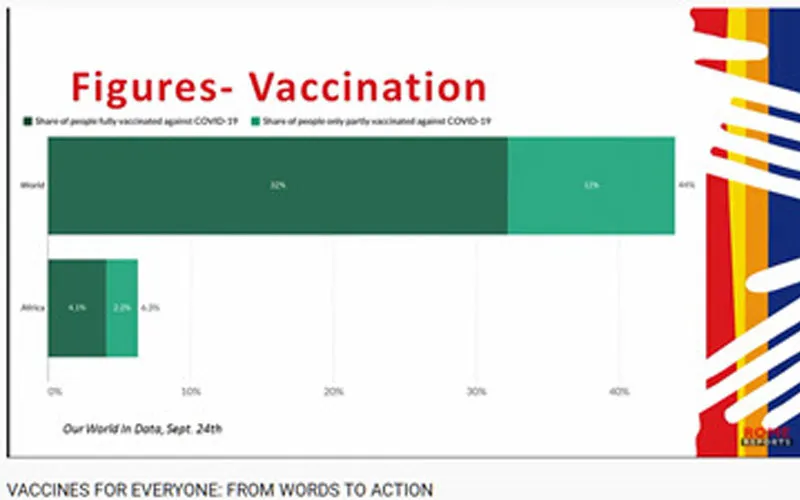 Credit: Screenshot from Youtube channel of Rome Reports 27 September 2021.
Credit: Screenshot from Youtube channel of Rome Reports 27 September 2021.
Additionally, populations go with the idea that the vaccination has been useless, she said, adding that in most instances, the people have other problems they consider to be bigger than COVID-19.
“The economy is a big issue for the people,” Ms. Corbi said, and added, “Small markets and businesses have been burnt; schools have been closed, leaving children alone in the streets. The bigger emergency for people is poverty, the lack of work, hunger more than COVID-19, which is a lesser threat compared to other diseases such as malaria, HIV, TB among others.”
Agnes Aineah is a Kenyan journalist with a background in digital and newspaper reporting. She holds a Master of Arts in Digital Journalism from the Aga Khan University, Graduate School of Media and Communications and a Bachelor's Degree in Linguistics, Media and Communications from Kenya's Moi University. Agnes currently serves as a journalist for ACI Africa.
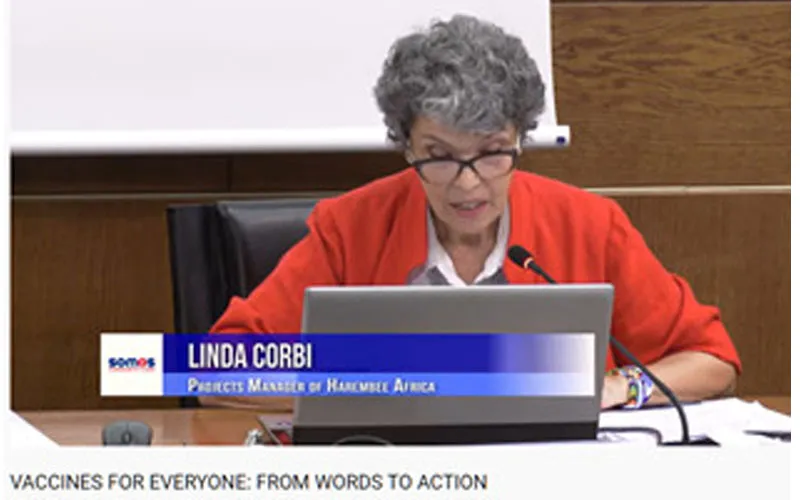 Credit: Screenshot from Youtube channel of Rome Reports 27 September 2021.
Credit: Screenshot from Youtube channel of Rome Reports 27 September 2021.


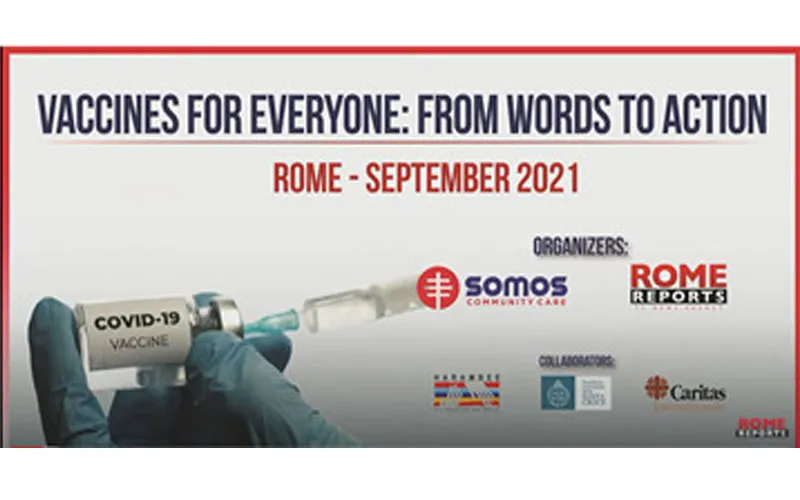

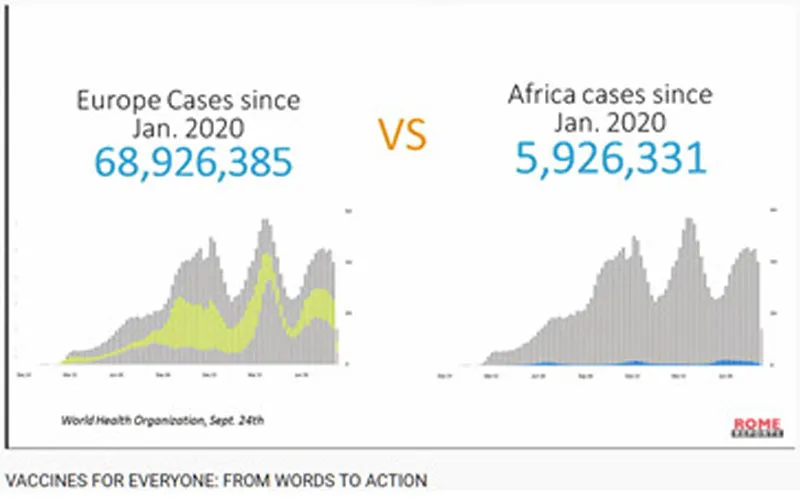 Credit: Screenshot from Youtube channel of Rome Reports 27 September 2021.
Credit: Screenshot from Youtube channel of Rome Reports 27 September 2021.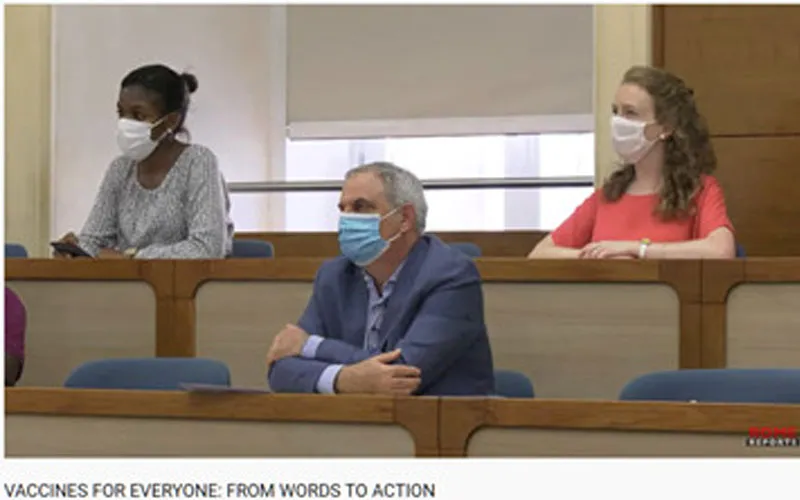 Credit: Screenshot from Youtube channel of Rome Reports 27 September 2021.
Credit: Screenshot from Youtube channel of Rome Reports 27 September 2021. Credit: Screenshot from Youtube channel of Rome Reports 27 September 2021.
Credit: Screenshot from Youtube channel of Rome Reports 27 September 2021. Credit: Screenshot from Youtube channel of Rome Reports 27 September 2021.
Credit: Screenshot from Youtube channel of Rome Reports 27 September 2021. Credit: Screenshot from Youtube channel of Rome Reports 27 September 2021.
Credit: Screenshot from Youtube channel of Rome Reports 27 September 2021. Credit: Screenshot from Youtube channel of Rome Reports 27 September 2021.
Credit: Screenshot from Youtube channel of Rome Reports 27 September 2021. Credit: Screenshot from Youtube channel of Rome Reports 27 September 2021.
Credit: Screenshot from Youtube channel of Rome Reports 27 September 2021.


